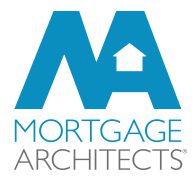Whether you’re in the market for a mortgage on your new home or you’re looking to renew or refinance an existing mortgage, it’s important to work with a mortgage agent who has access to multiple lender types – including, banks, credit unions and monolines, as well as alternative and private lenders.
More choice means you’re less likely to be turned down for a mortgage – even if you’re newly self-employed or have blemished credit – and you’ll always receive the best product and rate based on your unique needs.
Below are some benefits to working with monoline, alternative and private lenders.
Monoline lenders
Monoline lenders work exclusively through the mortgage brokering channel. While a bank represents a more traditional option, flexible lenders such as monolines offer very competitive pricing and specialized products.
As the term ‘mono’ suggests, monolines have a singular focus – and that’s mortgages. They won’t offer you a bank account or other type of financial service.
Monoline lenders often source their funds through the big banks – even ones that don’t lend directly through the mortgage brokering channel. And monolines are frequently able to pass along better deals to borrowers because they don’t face the high overhead costs associated with branch locations.
Alternative lenders
An alternative mortgage – also commonly referred to as non-traditional or unconventional – is exactly that: an alternative to a conventional (or traditional) mortgage. If you’re a new homebuyer or existing homeowner who doesn’t meet traditional lending criteria, an alternative mortgage lender may offer you a second chance at qualifying for your home loan.
Alternative lenders, also known as ‘B’ mortgage lenders, provide the same products as traditional, or ‘A’ mortgage lenders. There are some differences, however, particularly when it comes to qualifying criteria that tend to be less strict when using unconventional mortgage lenders. For instance, these lenders will still look at your credit history but your credit score doesn’t have to be as high as required with a traditional lender.
An alternative mortgage also carries shorter loan terms (typically one to two years) and, while interest rates tend to be a bit higher, they offer greater flexibility.
Private lenders
Private options are invaluable if you need a temporary fix to help you out of a tight situation and then aim to move back over to traditional lending. The great thing about private terms is that they’re shorter – typically a year or two – and flexible, meaning you can often pay them off at any time without penalty.
And while traditional mortgage financing looks at your credit score to determine qualification, private financing is equity based. In other words, private lenders want to know that they’ll be able to easily sell your property should the mortgage go into foreclosure.
You can expect to pay higher interest rates as well as lender/broker fees due to the complexity of private deals but, at the same time, you’ll benefit from the opportunity to clean up your credit, establish yourself as a self-employed business owner or otherwise improve your chances of qualification for a traditional mortgage.
Mortgage requirements and qualification are unique to every borrower. That’s why the added choice and flexibility you receive through working with a mortgage agent is helpful, regardless of whether you’re obtaining your first or fifth mortgage.
Have questions about the value of having access to a variety of lender types? Call me to discuss for unbiased free consultation Rajiv Verma, Mortgage Broker 647.291.7116 or rajiv@simplifymortgage.ca





Recent Comments